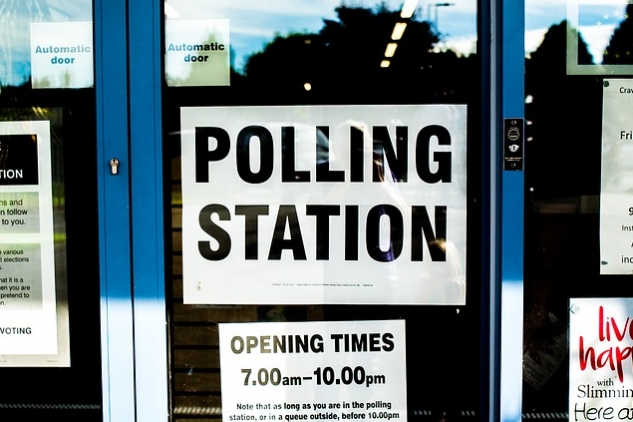
FLEX’s run down of what the party manifestos mean for labour exploitation
After a week of manifesto launches, FLEX considers what the mainstream political parties are saying they will do to prevent labour exploitation.1
Importantly every Party makes strong promises to uphold workers rights and protections. There are positive commitments on precarious employment relationships that contribute to worker vulnerability. On zero hours contracts that can trap people in poverty, Labour and the Green Party promise to get rid of them and the Liberal Democrats to stop the abuse of such contracts. Then there is the so called ‘gig economy’ – precarious forms of work with limited protections for workers, self-employment, short term contracts or freelance work. The Conservatives talk of ensuring workers are ‘properly protected’ and the Liberal Democrats of modernising employment rights whilst Labour offers all workers ‘equal rights from day one’.
In order to put promises on worker protection into practice, the Liberal Democrats say they will strengthen ‘enforcement of employment rights’. Labour suggests it will establish a Ministry of Labour to tackle enforcement, although this new Ministry is not included in their costing document. Labour and the Liberal Democrats commit to getting rid of employment tribunal fees which would remove a major obstacle for workers pursuing abuses of labour rights. The Conservatives are silent on enforcement, and worryingly commit to continuing the Red Tape Challenge that has seen worker protections reduced in order to remove burden on business. In a similar vein the Liberal Democrats talk about removing ‘unnecessary regulation’.
On the biggest upheaval of our time – Brexit – pledges will have huge repercussions for workers rights, worker vulnerability and ultimately labour exploitation in the UK. The Conservative Party makes short-term positive commitments on workers rights but offers long-term uncertainty. The manifesto promises workers rights that derive from EU law will be available ‘at the point at which we leave the EU’. This is worrying because whilst their planned ‘Great Repeal Bill’ will first bring all EU legislation into UK law it will then begin a process to ‘amend, repeal or improve’ what is there. Similarly the Conservative manifesto pledges to retain the Human Rights Act until the Brexit process concludes when it will be considered again. Equally the European Convention of Human Rights – from which the UK definition of slavery, servitude and forced labour take their meaning – is guaranteed specifically and solely for the duration of the next parliament.
Labour proposals offer more certainty about the future with an ‘EU Rights and Protections Bill’ instead of the Great Repeal Bill, to guarantee workers rights and equality law after Brexit. The Liberal Democrats call for the UK to ‘unilaterally guarantee the rights of EU nationals in the UK’ and recognise the contribution of EU workers to the British economy, yet only go so far as saying that they will ‘fight to ensure’ social protections are ‘not undermined’. The Greens, whilst quite vague, commit to safeguarding ‘vital rights for people’, including by re-instating funding for the Equality and Human Rights Commission.
In terms of the terminology used to address exploitation and ‘modern slavery’ the varied approaches are telling. The Greens talk in general terms, seeking a ‘Green economy’ that would replace the exploitation of people with decent work. The Liberal Democrats broach exploitation by talking of unscrupulous employers who perpetuate bad practice. Labour addresses exploitation in its section on immigration, promising to ensure border controls are in place to address ‘modern slavery’ and noting how exploitation means the undercutting of UK workers pay by migrant workers. This makes for disappointing reading, repeating a line from the 2015 Labour Manifesto, and seems to miss the point that no worker seeks to ‘undercut’ others but is made vulnerable to abuse and exploitation when employment laws are flouted.
The Conservative Party writes the most on the subject. Theresa May is proud of her record as Home Secretary introducing the world’s first ‘Modern Slavery’ Act and the manifesto calls the UK ‘a global leader’ in the fight against this crime as a result. The Conservatives promise to go further, addressing labour exploitation by reviewing ‘the application of exploitation in the Modern Slavery Act’ – although what this means in practice is not clear. The Conservative manifesto also promises to advance the fight against ‘modern slavery’ at the international level.
In summary, the fact that each Party manifesto offers strong promises on workers’ rights is a sign of the times. In recent years there has been universal recognition of the need to act to address precarious working and improve protections for workers. However, when it comes to workers most at risk, the measures promised to prevent exploitation are as varied as the understandings of exploitation themselves. All political parties have a long way to go to understand how to prevent labour exploitation. Whoever wins the election on June 8th, FLEX will stand ready to work with them to inform such policy decisions and to take the decisive action necessary in the future.
[1] This blog, takes each manifesto at its word, and distinct from each Party’s record of action it also focuses on commitments rather than detail, which is lacking in most pledges from most Parties.
